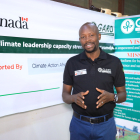Refugee crises shaping classroom debates: reflections from Kabale University
Discussion details
I am a Professor of Education at Kabale University, located in southwestern Uganda at the confluence of four countries (Uganda, Rwanda, the Democratic Republic of Congo and Tanzania). This region is at the heart of the Great Lakes region of East Africa. The unique location of our university situates it at the center of a region often impacted by refugees and displaced persons always moving back and forth due to regional conflicts.
In my classrooms, where students come from diverse backgrounds, class deliberations frequently gravitate toward the challenges faced by refugees and the perceived preferential treatment extended to them by the government and humanitarian organizations. These debates are not abstract, but they reflect the lived realities that my students encounter in their communities. The energy and passion that my students bring to these conversations is without any reservation, commendable and demonstrates their commitment to deriving lasting solutions, which, among others, takes the form of exploring ways in which societies might address the challenges of displacement, integration and equity. The depth of the students’ enthusiasm to engage with refugee issues is not only inspiring but also points to the absence of their voices in a practical sense when it comes to considering lasting solutions to the problem of displaced persons and refugees.
As the students’ voices reveal, refugee crises do not only affect those displaced but also leave a profound mark on host societies. This synergistic relationship points to the urgent need for collective action where diverse stakeholders work together toward sustainable solutions. At Kabale University, these ongoing classroom conversations are shaping the next generation of leaders who will view refugee issues not as distant problems but as shared challenges that demand empathy and collectively working towards durable solutions.

Log in with your EU Login account to post or comment on the platform.